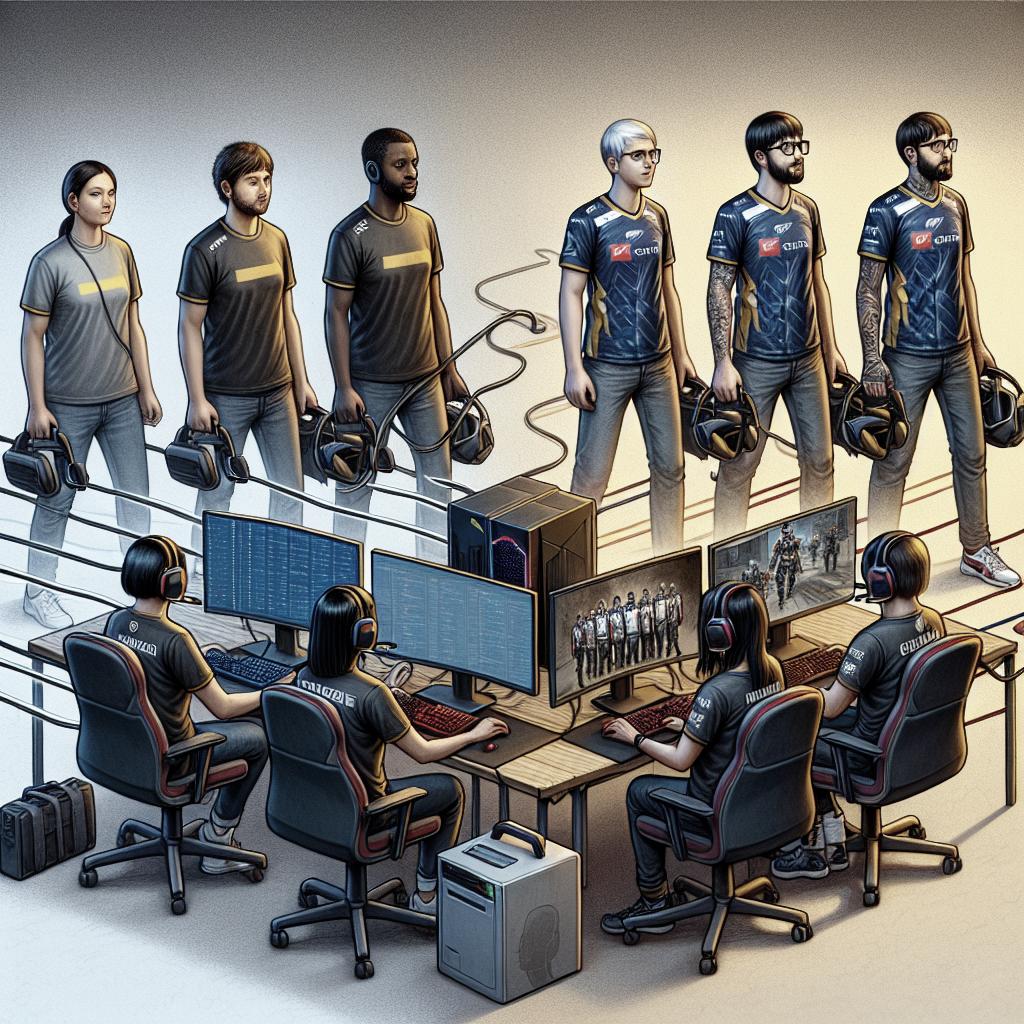In the ever-evolving game of job hunting and career advancement, interviews stand as a pivotal moment where candidates showcase their potential. Recent player interviews across various industries have shed light on valuable insights that could be game changers for job seekers aiming for success. This blog post delves into the key takeaways from these interviews, offering participants strategic advice and highlighting common interview experiences. We will explore the nature of interviews as bidirectional dialogues, the importance of thorough preparation, the mastery of self-presentation, the observational skills needed to gauge a hiring manager’s behavior, and the reassuring understanding that it’s perfectly acceptable if opportunities don’t always pan out. These insights, sourced from recent player interviews, equip aspirants with critical knowledge to navigate the interview process with confidence and clarity.
Interviews are two-way conversations
When entering an interview, it’s crucial to remember that it is not just an assessment of your skills and qualifications but also an opportunity for you to evaluate the company and the role. Recent player interviews emphasize the significance of treating interviews as two-way conversations. This approach allows candidates to engage actively with interviewers, demonstrating curiosity and initiative, which are qualities often sought after by employers. By asking insightful questions, candidates can gauge whether the company’s values, culture, and expectations align with their career goals and personal values. Additionally, transforming the interview into a dialogue rather than a one-sided interrogation enables candidates to create a more relaxed atmosphere. This can help reduce anxiety and allow both parties to share more genuine insights. By maintaining open communication, candidates can also leave a lasting impression of being proactive, confident, and genuinely interested in the role and the organization. Moreover, approaching interviews as conversations positions candidates to clarify uncertainties they may have, such as team dynamics, day-to-day responsibilities, and growth opportunities within the organization. This not only benefits the candidate in making an informed decision but also presents a mature and thoughtful image to the interviewers.
Preparedness for the Interview is of paramount importance
Preparation remains the cornerstone of a successful interview. Recent reflections from interviews underscore the critical role of being well-prepared, which cannot be overstated. Candidates are advised to research thoroughly about the company, its products or services, recent achievements, cultural values, and the industry in which it operates. This knowledge not only helps candidates tailor their responses more effectively but also demonstrates a serious interest in the prospective employer. Preparation extends beyond company research. Interviewees should be familiar with the job description and identify key areas where their skills and experiences align with the requirements of the role. Practicing responses to common interview questions can help candidates communicate their strengths more clearly and confidently. Mock interviews and rehearsing with peers can also improve the ability to articulate one’s thoughts under pressure, mitigating nervousness and enhancing performance. Being adequately prepared also means having thoughtful questions ready for the interviewer. These questions should reflect an understanding of the company and an eagerness to further explore the facets of the job that resonate with the candidate’s ambitions and skills. Good preparation shows respect for the interviewer’s time and sets the stage for an impactful dialogue.
Master the one ever-present interview question: Tell me about yourself
This ubiquitous interview question, “Tell me about yourself,” often sets the tone for the rest of the interview. Insights from recent interview experiences reveal how important it is to master this question to make a strong first impression. A well-crafted response should provide a concise narrative of the candidate’s professional journey, emphasizing relevant skills and accomplishments that align with the position. Candidates are encouraged to approach this question with a mix of storytelling and professionalism. Sharing anecdotes that highlight problem-solving abilities, leadership skills, or other relevant experiences can captivate the interviewer’s interest. Moreover, aligning personal values and career aspirations with the company’s mission during this introduction creates a coherent narrative about why the candidate is an excellent fit for the position. It’s essential to keep this response balanced, neither too short and superficial nor too long and detailed. Striking the right balance showcases the candidate’s ability to communicate effectively and understand the nuances of professional self-presentation. Crafting a response that is clear, engaging, and strategically aligns with the potential employer’s needs can set a positive tone for the entire interview.
Pay close attention to the Hiring Manager’s behaviour
Observing the hiring manager’s behavior during an interview offers candidates subtle cues about the company culture and the team they might work with. Recent interview analyses suggest that carefully noting the mannerisms and attitudes of interviewers can provide insights into the organizational atmosphere. Are they relaxed and open, indicating a more casual work environment? Or are they formal and structured, hinting at a more traditional workplace? The questions asked and the manner in which they are delivered can also reveal the interviewer’s priorities and the company’s values. If an interviewer focuses on creative problem-solving questions, it might signal an environment where innovation and creativity are prized. Conversely, a focus on procedural and strategic questions might suggest emphasis on efficiency and tactical execution. Furthermore, how the interviewer responds to your questions can be quite telling. Are they enthusiastic and detailed with their answers, reflecting transparency and openness within the company? Or are their responses vague or guarded, which might indicate areas to further explore if considering a job offer? Paying attention to these nuances can help candidates assess compatibility with the company more accurately.
It is alright if you don’t get ahead in the hiring process
While every job seeker aims for a positive outcome following an interview, it’s essential to acknowledge that not advancing in the hiring process is a normal part of the job search journey. Recent insights from sought-after professionals reveal that setbacks can offer valuable learning experiences. They provide an opportunity to reflect on the experiences and identify areas for improvement for future interviews. Feedback, if available, can be incredibly beneficial; it can offer specific suggestions on how to refine interview skills, enhance one’s resume or portfolio, or better align one’s career trajectory with industry demands. Engaging constructively with feedback can pave the way for growth and better preparation for the next opportunity. Lastly, candidates should remember that not every job or company will be a perfect fit, and being selective about the right opportunities is crucial. If a potential mismatch is identified during the interview process, it can be seen as a blessing in disguise. The goal is to find a position and environment that align well with one’s skills, aspirations, and values, leading to long-term satisfaction and success.
| Key Insight | Details |
|---|---|
| Interviews are two-way conversations | Candidates should engage actively to evaluate company culture and establish a relaxed dialogue. |
| Preparedness for the Interview is of paramount importance | Research the company, practice responses, and prepare insightful questions to demonstrate commitment. |
| Master the one ever-present interview question: Tell me about yourself | Craft a professional narrative highlighting skills and experiences that align with the role. |
| Pay close attention to the Hiring Manager’s behaviour | Observe interview cues to gauge company culture and values. |
| It is alright if you don’t get ahead in the hiring process | View setbacks as learning opportunities and remain selective about the right career fit. |
These insights from recent player interviews offer a well-rounded perspective on navigating the interview process. By recognizing interviews as mutual exchanges, emphasizing thorough preparation, mastering personal storytelling, being observant of the hiring manager’s behavior, and embracing the learning aspect of the hiring journey can greatly assist candidates to not just succeed in securing jobs, but in finding roles where they can truly flourish.


